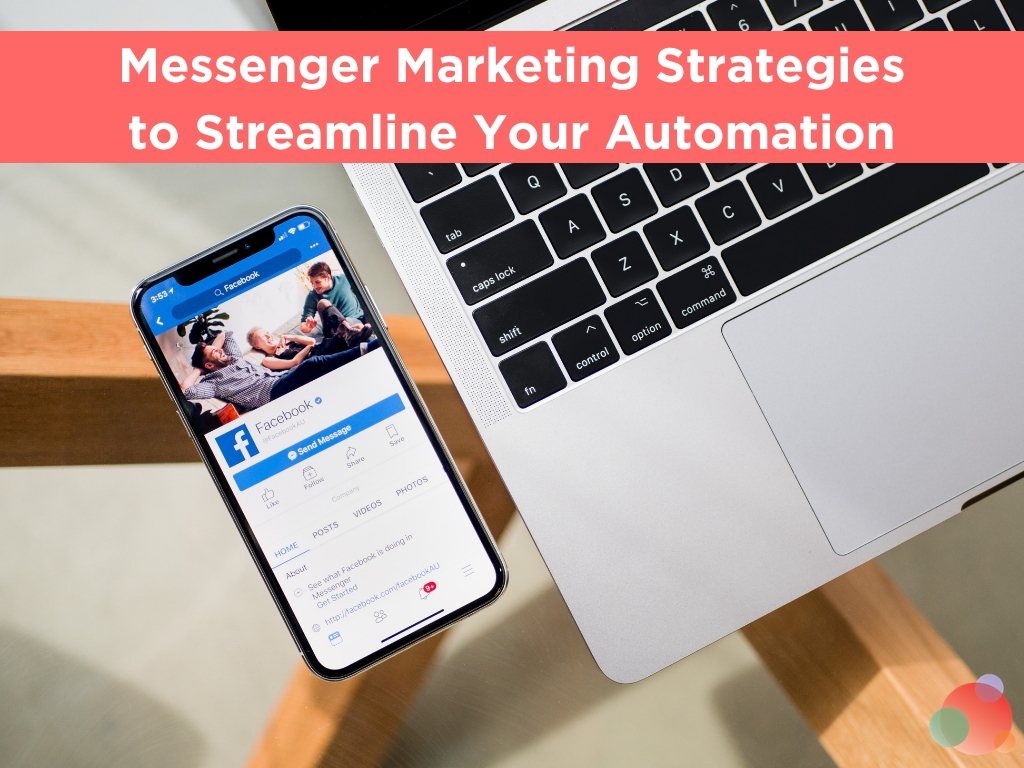 In April 2016, Facebook launched its Messenger Platform.
In April 2016, Facebook launched its Messenger Platform.
It’s a service allowing businesses of any size to create an engaging consumer experience through custom chatbots (bots).
Powered by artificial intelligence, chatbots allow brands to interact with consumers in a conversational tone via automated messages in real-time.
Flash forward to today.
Facebook Messenger has 300,000 active chatbots engaging with more than one billion users.
Every month, businesses and consumers exchange more than eight billion messages, making Messenger the world’s largest mobile messaging app.
Using bots, consumers can ask questions, schedule appointments, subscribe to content, purchase products, track packages, and learn more about a company.
According to ManyChat, Messenger is currently in a prime position to become the world’s number one marketing channel.
And, by 2020, 80 percent of businesses will be using Messenger bots for customer-centric interaction.
Gartner, predicts by 2020, 85 percent of business will be conducted without ever interacting with another human being.
So what do these statistics mean for B2B marketers?
By implementing Facebook Messenger into a low-cost, high-return B2B marketing campaign, brands have a bigger opportunity to engage their audience, turn prospects into leads, and build long-lasting business relationships.
Here are three Messenger marketing strategies you can use to help streamline your marketing automation and grow your business.
Build Relationships
Fifty-three percent of people are more likely to shop with a business if they can message them directly.
And 56 percent of people would rather message than pick up the phone and call.
So let’s face it, B2B agencies have to work harder than their B2C counterparts on building a connection with consumers.
Facebook is the number one social media platform for B2B marketers, and that makes Messenger a convenient channel.
By using it, you can let consumers know you’re intent on creating a personalized, one-on-one interaction with them.
Programming enables the bots to speak in a conversational tone and interact like humans. And because of that, consumers are more likely to trust them.
Messenger allows consumers to connect with businesses and receive immediate answers to questions about customer support, products, services, and can even schedule meetings.
Bots respond immediately, and in real-time, so there is no waiting on hold over the phone or for email support to respond.
Using this feature helps brands provide better customer service and delight customers creating brand loyalty.
Broadcast Your Content
Engagement on Facebook Messenger yields an 80 percent open rate and 20 percent click-through rate.
Compared to email’s nearly 19 percent open rate and eight percent click-through rate.
Larry Kim, the founder of Mobile Monkey, the World’s Best Facebook Messenger Marketing Platform, states,
With five to 10 times the open rates and zero to 20 times the click rates, Facebook Messenger marketing could be a game changer for your brand.
Raise your hand if you have 500 or more unopened emails in your inbox.
OK, you can put them down now. I’m just happy I’m not the only one.
We all have different reasons why we have so many unopened emails in our inbox.
But the main one is the high number of unwanted emails we receive daily. And sometimes, even the ones we want to read fall into that mix.
Combine these emails and so much digital content, and it’s easy to get lost. Your frustration becomes so great that you stop visiting your favorite industry websites for the latest news.
B2B agencies must utilize every opportunity and channel to ensure their content is seen by their audience.
This is where Messenger Broadcast comes in.
Use it to deliver your agency’s B2B content-blogs, infographics, white papers, case studies, and videos-to subscribers when they want to read it.
One brand reaping the rewards of Messenger Broadcast is online technology news publisher, TechCrunch.
The TechCrunch bot provides a personalized experience for consumers by allowing them to subscribe to content they prefer (trending topics, specific authors, etc.), and how often they want to receive it.
TechCrunch knows that by sending content consumers want to read, they can create a positive association with their brand and ultimately drive more traffic to their site.
And when it comes to broadcasting content through Messenger, you won’t receive those frustrating bounces as with email.
That’s because Messenger ties to real Facebook accounts, so your content is sure to go through.
Qualify Sales Leads
Only 56 percent of B2B companies verify business leads before passing them on to their sales team.
Qualifying a lead requires a sales associate to spend a lot of time on phone calls and emails.
Alternately, a Messenger marketing bot can start the process immediately by asking questions. They can collect data, offer a free demo, schedule a meeting, and even follow up later with the prospect.
By allowing bots to qualify sales leads, your sales team can focus on top leads and closing sales.
Bots are not designed to replace your sales team, but to be an extension.
Additionally, prospects will likely find the experience efficient and enjoyable since it allows them to be in control of the buyer journey.
Another bonus when using a bot is they are guaranteed never to miss an opportunity to qualify a sales lead during non-business hours since they require no time off or sleep.
Before building a Messenger marketing bot, communicators should have well-thought-out campaigns that align with sales and marketing goals.
This ensures proper implementation of chatbot features which will optimize your results.
I recommend reading the Messenger Platform Policy Overview to guarantee your campaigns are in compliance with messaging policies for the Messenger Platform.
Messenger Marketing Strategies
Do you use Messenger as a B2B marketing tool or have you built a bot?
I’d love to hear what’s working—and what’s not.
The comments are yours.
Photo by Tim Bennett on Unsplash